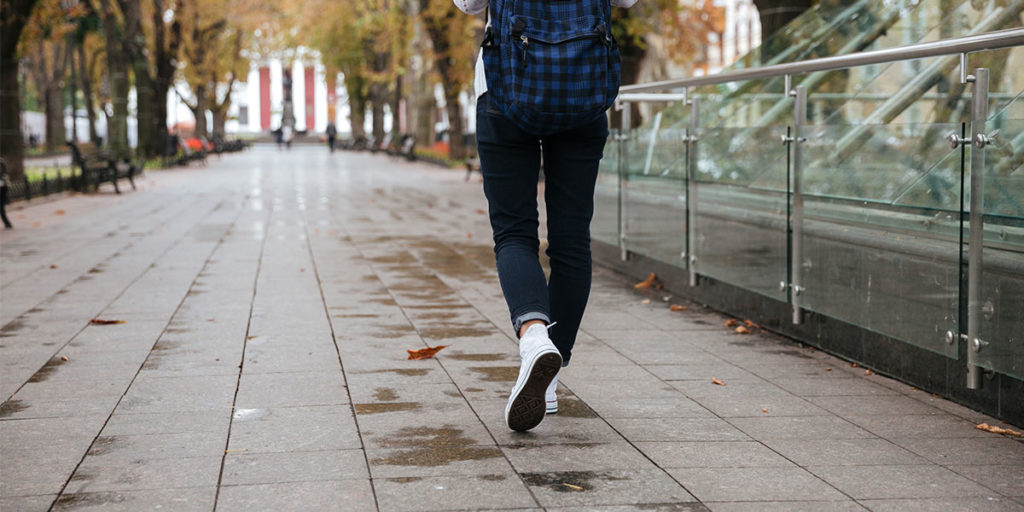Quick Hits
Daily brief research updates from the cognitive sciences

If you want to age better, then walk quicker, or those who walk quicker, age slower. That is the result of a recent study of 400,000 UK adults mapped to genetic markers of age by the University of Leicester.
What exactly did these researchers find?
They looked at the telomeres which you may have heard of. These are caps at the end of your chromosomes that protect the chromosome (which houses your DNA). They’re kind of like the caps on shoelaces which stop them fraying. Once these shorten or disappear your DNA is at danger of losing the ability to replicate.
Telomere length seems to be a pretty good indicator of biological age irrespective of how old you are.
And this is where the connection becomes interesting. It seems that fast, or brisk, walkers have longer telomeres, and this can lead to a whopping 16 years younger biological age by midlife. That’s a lot. This is also independent of how much other exercise you get.
The same researchers have also shown previously that as little as 10 minutes of brisk walking a day is associated with longer life expectancy and that brisk walkers can have up to 20 years greater life expectancy than slower walkers.
Though they haven’t been able to fully confirm that faster walking speed will lead to greater life expectancy (in contrast to those who naturally walk faster having a natural longer life expectancy) they do note after this study that it is likely.
So, get yourself walking, briskly. My advice for those in the office to have a 3-minute brisk walk every hour seems also to hold very, very true for this, and other reasons.

Andy Habermacher
Andy is author of leading brains Review, Neuroleadership, and multiple other books. He has been intensively involved in writing and research into neuroleadership and is considered one of Europe’s leading experts. He is also a well-known public speaker speaking on the brain and human behaviour.
Andy is also a masters athlete (middle distance running) and competes regularly at international competitions (and holds a few national records in his age category).
Reference
Paddy C. Dempsey, Crispin Musicha, Alex V. Rowlands, Melanie Davies, Kamlesh Khunti, Cameron Razieh, Iain Timmins, Francesco Zaccardi, Veryan Codd, Christopher P. Nelson, Tom Yates, Nilesh J. Samani.
Investigation of a UK biobank cohort reveals causal associations of self-reported walking pace with telomere length.
Communications Biology, 2022; 5 (1)
DOI: 10.1038/s42003-022-03323-x
More Quick Hits
Can Having More Children Reduce Cognitive Functioning?
Quick HitsDaily brief research updates from the cognitive sciences aving more children and late life cognition is not something that is generally researched. There are more obvious avenues such as diet, education, exercise, or socio-economic...
How Sleep Helps Your Brain Manage Fear
Quick HitsDaily brief research updates from the cognitive sciences leep on i” is common advice for many reasons. Often to consolidate thoughts and help boost creativity. This is a well-known effect. We also know that sleep is the time that helps to...
Video games can boost children’s intelligence
Quick HitsDaily brief research updates from the cognitive sciences ell, this is not the answer many of us would expect, and it goes against other logic of spending more time doing other things such as reading or socialising with friends...
Just how many people get COVID brain?
Quick HitsDaily brief research updates from the cognitive sciences here are many questions still open about COVID and the brain. There is no doubt that long COVID exists, and this can have dramatic impacts on people’s lives. But just how...
Brain networks and losing weight – successfully or not
Quick HitsDaily brief research updates from the cognitive sciences s weight loss all in the mind? Well, with the danger of oversimplifying a complex topic, this latest research shows it is, and shows precisely how and with what networks. So,...
Reversing aging – with poo!
Quick HitsDaily brief research updates from the cognitive sciences ho wouldn't want to age better - well the results of an unsual study are in and the results are promising and may make many of you who are aging prick up your ears. The...






